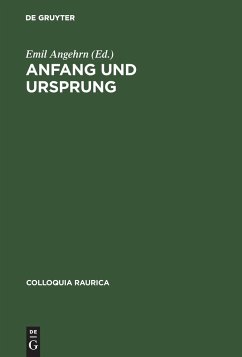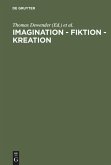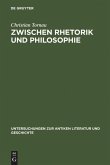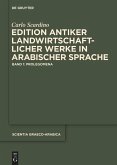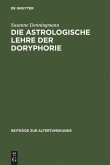The question of origins has occupied people of all cultures and epochs. In a particular way it determines the thinking of philosophy, which in its classical understanding is concerned with seeking out first causes and principles. In this, it follows on from the line of enquiry followed by myth, which in its turn gives an account of first beginnings and causes. Outside philosophy, too, a variety of notions of origins give direction and orientation to enquiry in the sciences, in world views and religions, in theories of nature and of history. The question of origins cannot be reduced to one single question or answered with one single answer. It belongs to that circle of open questions which, according to Kant,philosophy can neither answer nor ignore. The papers presented here provide material for discussing the heterogeneity of the questions posed and reflect the tension inherent in the reference to origins as a whole.
Die Frage nach dem Ursprung hat die Menschen in allen Kulturen und Epochen beschäftigt. In besonderer Weise bestimmt sie das Denken der Philosophie, das nach klassischem Verständnis der Erforschung der ersten Ursachen und Prinzipien gilt. Es schließt darin an die Fragerichtung des Mythos an, der seinerseits von ersten Anfängen und Gründen berichtet. Auch außerhalb der Philosophie, in Wissenschaften, Weltbildern und Religionen, in Theorien der Natur und der Geschichte, bilden Vorstellungen vom Ursprung in vielfachen Abwandlungen Leitideen des Fragens und der Orientierung. Die Frage nach dem Ursprung ist nicht auf eine Frage zu reduzieren und nicht durch eine Auskunft zu beantworten. Sie gehört in den Kreis jener offenen Fragen, die das Denken nach Kant nicht beantworten, aber ebenso wenig abweisen kann. Die vorliegenden Aufsätze bieten Diskussionsmaterial zur Heterogenität der Fragestellungen und reflektieren das Spannungsverhältnis, das dem Ursprungsbezug insgesamt innewohnt.
Die Frage nach dem Ursprung hat die Menschen in allen Kulturen und Epochen beschäftigt. In besonderer Weise bestimmt sie das Denken der Philosophie, das nach klassischem Verständnis der Erforschung der ersten Ursachen und Prinzipien gilt. Es schließt darin an die Fragerichtung des Mythos an, der seinerseits von ersten Anfängen und Gründen berichtet. Auch außerhalb der Philosophie, in Wissenschaften, Weltbildern und Religionen, in Theorien der Natur und der Geschichte, bilden Vorstellungen vom Ursprung in vielfachen Abwandlungen Leitideen des Fragens und der Orientierung. Die Frage nach dem Ursprung ist nicht auf eine Frage zu reduzieren und nicht durch eine Auskunft zu beantworten. Sie gehört in den Kreis jener offenen Fragen, die das Denken nach Kant nicht beantworten, aber ebenso wenig abweisen kann. Die vorliegenden Aufsätze bieten Diskussionsmaterial zur Heterogenität der Fragestellungen und reflektieren das Spannungsverhältnis, das dem Ursprungsbezug insgesamt innewohnt.

